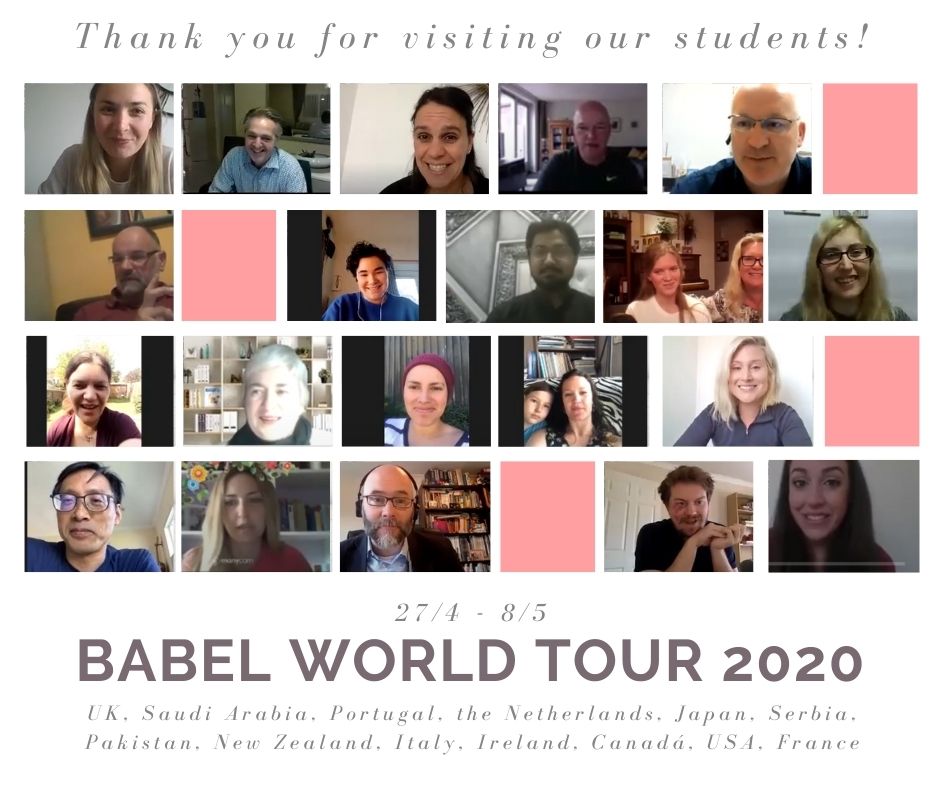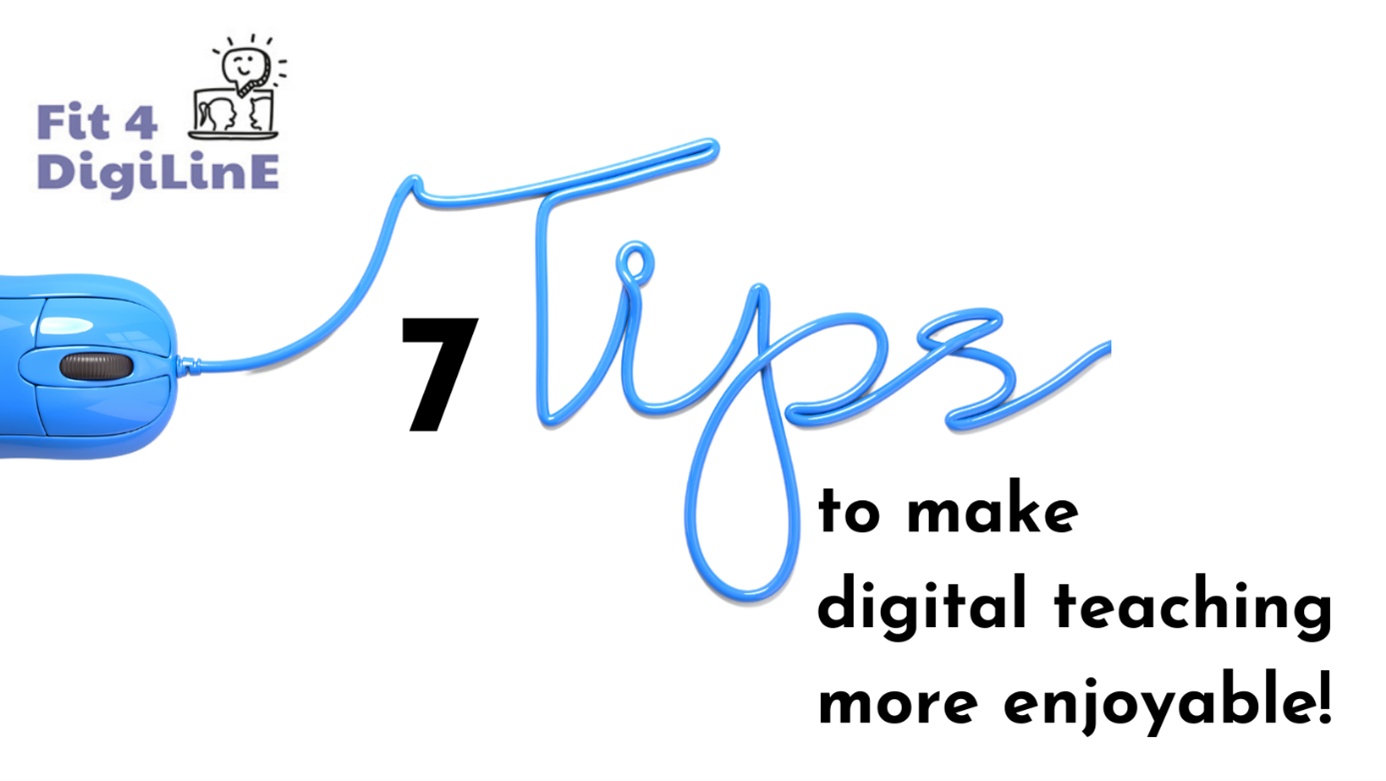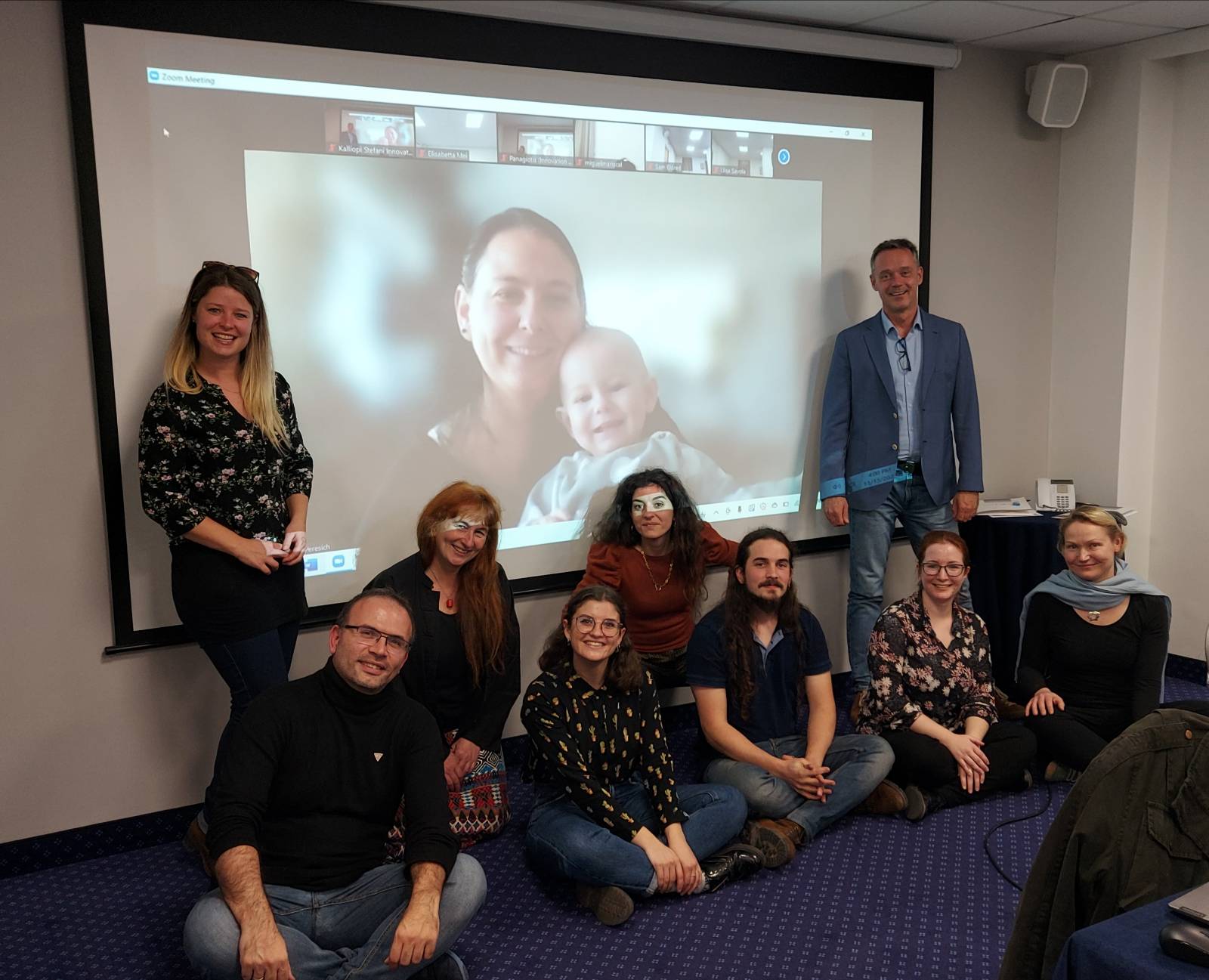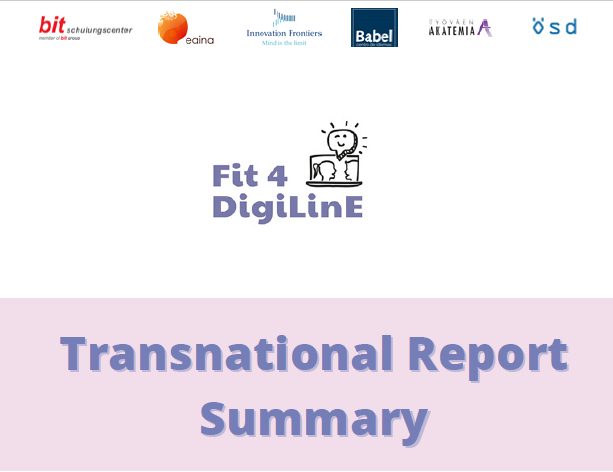Taking your students on a world tour via their laptop. That’s what project partner Babel Idiomas decided to do one year ago, after 4 weeks of lock down in Spain. Students were stressed, anxious and uncertain about their direct future and needed a distraction. When teachers and school management analyzed that situation, they decided to organize the first “Babel World Tour”, a virtual tour around the world.
Babel’s staff reached out to friends, family, acquaintances and facebook and linkedin contacts around the world and selected over 25 visitors from countries like Japan, New Zealand, Canada, Pakistan, Latvia, the UK, the Netherlands or Brazil.
Some of the visitors were students, others teachers, but there were also bankers, doctors, administrators, executives, musicians, etc..
Visitors would act as mystery guests and would join one of the school’s zoom classes at an arranged time. Students would have prepared a set of questions to find out where the mystery guests were living, what their job was, etc.. And after the first, organized questions, they would ask about the situation in their country, the restrictions, etc.
When trying to find out where the visitors lived, students would ask about continents, about climate, about languages, about food, etc. And teachers would share their screen, and zoom in on Google Maps when the students came yet a bit closer (or not). Some visitors took their laptop to the window or in the garden to show the students where they lived or worked.
What was supposed to be a 15-20 minute speaking activity and short distraction for the students, turned out to be a massive success. Visitors would stay for over an hour and they would chat about many different items like their jobs, politics, sports, etc.
Even the younger students, 8 or 9 years old, enjoyed the visits and would ask one question after another. But the teens and adults enjoyed it most. One student said; “it was like the highlight of my day. We were all so excited when we knew there would be a mystery guest”. But the visitors enjoyed it too. One executive from San Francisco said that he just loved spending an hour online chatting with teens in Spain before moving to his next business meeting.
But the most important thing is that even those students who usually don’t speak very much in class, now used their English skills in real life conversations. For many students it was their first time ever to use English in a non classroom situation. After the visits, the motivation to practice and improve their English rose to incredibly high levels.
The first Babel World Tour lasted for 2 weeks and each group of students received the visits of 4 mystery guests. After this huge success, the school decided to organize a second World Tour, in november, with some repeating guests and many new visitors from new and exotic places. This online activity has not gone unnoticed. In May 2021, Babel Idiomas was awarded the FECEI TOP Award for Innovation in Language Teaching by the Spanish Federation of Language Schools.
When are you going to take your students on a virtual world tour?




